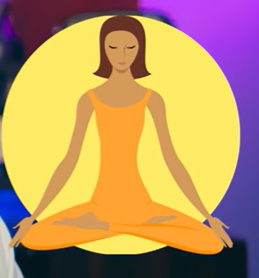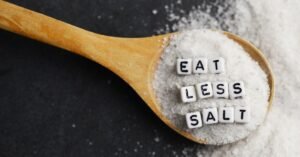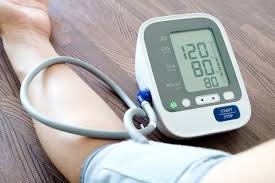Many people unknowingly put their lives at risk by stopping their medications for chronic conditions like blood pressure and diabetes. Let’s explore real-life cases and understand why continuous treatment, guided by a doctor, is critical for your long-term health.



A Case of Self-Medication in a Blood Pressure Patient
Early Morning Emergency
One morning, around 5 a.m., an elderly man was rushed to our hospital. According to his family, he had woken up to use the bathroom when suddenly, half of his body stopped responding. By the time he arrived at the emergency room, he was unconscious and required ventilation.
The Real Cause
His blood pressure was dangerously high at 220/110, and a brain scan confirmed a massive hemorrhage (brain bleed). The family informed us that he had a history of high blood pressure but had stopped his regular medication in favor of a herbal remedy claiming to normalize blood pressure within 15 days.
Unfortunately, we couldn’t save him.
Why Do People Avoid Blood Pressure Medication?
Many patients feel fine and assume their blood pressure must be normal. But the dangerous thing about high blood pressure (hypertension) is that it often shows no symptoms until a serious complication occurs.
You may not feel anything—no headache, no tiredness—but damage is happening inside your body.
Understanding Blood Pressure: A Simple Analogy
Imagine a water pump pushing water through a pipe. That’s how your heart (the pump) pushes blood through arteries (pipes).
What happens when pressure rises?
-
Heart Failure – Continuous high pressure overworks your heart, leading to heart failure.
-
Artery Damage – Excess pressure damages the blood vessel walls, allowing cholesterol to build up, which can block arteries and trigger a heart attack.
-
Stroke or Brain Hemorrhage – Blood vessels in the brain can burst, causing strokes or hemorrhages.
Doctor’s Advice for Blood Pressure Patients
-
Never stop your medication on your own.
-
You might feel “normal” only because the medicine is working!
-
Consult your doctor if you want to reduce or stop medication.
-
With the right lifestyle—including regular exercise, stress reduction, low-salt diet, and weight control—your dosage might be reduced over time.
-
Regular checkups are essential.
-
Always follow your doctor’s instructions regarding medication compliance.
Case of a Diabetes Patient Who Chose Self-Treatment
Another patient arrived with mild complaints but had stopped taking diabetes medication because he believed in natural remedies like neem leaves and fenugreek seeds.
What We Found
After a full-body checkup, we discovered:
-
Kidney damage
-
Eye damage
-
Nerve damage (tingling in limbs)
-
Burning during urination
He had no idea these were complications of uncontrolled diabetes.
Why People Stop Diabetes Medicine
Often influenced by unverified online videos or home remedies, many people stop their medication believing they’re cured.
But diabetes is a silent disease. It causes internal damage without showing early symptoms. By the time signs appear, serious complications may have already begun.
Why You Should Not Stop Diabetes Medicines
-
Diabetes slowly damages every organ—from head to toe.
-
Like BP meds, diabetes medicines must not be stopped unless advised by a doctor.
-
Controlled diabetes means no long-term damage. But irregular treatment leads to complications.
The Good News
Yes, early-stage diabetes can be reversed or controlled. But only if:
-
You exercise regularly
-
Eat a low-carb diet
-
Take medication as prescribed
-
Monitor your sugar levels
-
Stay in touch with your doctor
Understanding Diabetes: How It Affects the Body
Your body uses insulin, a hormone, to transport glucose (sugar) from your blood to your cells for energy.
In diabetes:
-
Either the body doesn’t produce enough insulin, or
-
The insulin produced stops working effectively (insulin resistance).
As a result, blood sugar levels rise, and glucose can’t reach the body’s cells.
Symptoms You May Notice:
-
Excessive hunger (because cells aren’t getting glucose)
-
Excessive thirst (due to thickened blood)
-
Frequent urination
What Causes Insulin Resistance?
-
Obesity is one of the major causes.
-
Lack of physical activity worsens it.
-
Eating too many carbs spikes sugar levels.
How to Manage Diabetes and Blood Pressure Naturally (But Safely)
While medicines are crucial, supporting your treatment with lifestyle changes is equally important:
Blood Pressure
-
Daily physical activity
-
Low-salt diet
-
Stress management
-
Regular monitoring
Diabetes
-
Exercise to boost insulin sensitivity
-
Low carbohydrate meals
-
No missed doses
-
Frequent blood sugar checks
-
Stay connected with your healthcare provider
Final Takeaway: Don’t Play Doctor
Whether it’s blood pressure or diabetes, never stop or alter medications without your doctor’s guidance. Natural remedies and lifestyle improvements help, but they can’t replace medical treatment.
Early action, consistent monitoring, and medical supervision are your best tools for living a long, healthy life—without life-threatening complications.